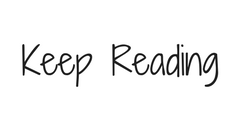The previous post was all about the need to FOCUS to improve your productivity and to stop multitasking. Multitasking doesn’t work and leads to mistakes. So many of us have spent so much time trying to do several things at once that we don’t remember how to focus.
The first step to increase your productivity is to develop your focusing skills. The following tips will help you improve.

Deep Breathing: Allocate at least 30 minutes each day to deep breathing, two fifteen minute sessions or three minute sessions are helpful. Find a quiet place to sit comfortably where you won’t be disturbed. Close your eyes and take a long, deep breath. Fill up your lungs. Slowly exhale. Focus on the air, how it touches your nostrils and enters your lips. How does it feel as it escapes?
When your mind begins to wander, bring your attention back to your breathing. Deep breathing exercises will help you practice your focus and have the added benefits of relaxing your circulatory system and creating a sense of peace.
A similar tactic is to listen to music to help improve your focus. Really concentrate on the music and try to focus on a single instrument.
Another tactic to improve your focus and increase your productivity is to break up goals into small achievable steps. Large goals can be daunting when you think of everything you need to do to achieve it. For example, if your goal is to open a gourmet bistro, you will need to find a location, negotiate a lease, hire an architect and a contractor to refurbish the space, design the kitchen, purchase the kitchen equipment, decide on a menu, locate suppliers and negotiate prices, hire and train staff, etc. The number of actions and decisions you need to complete is overwhelming. However, when you take the time to plan out what need to be done and focus on each step without worrying or thinking about actions that need to be taken weeks later, you will reach your goal faster.
Time clock: Work within your body’s most comfortable time period. Maybe you work best early in the morning before sunrise or late at night. Plan your most challenging tasks when you are most productive.
Light meals: Have you ever eaten a big meal for lunch and felt lethargic and sleepy all afternoon? Eating a heavy meal may slow you down. Meals with quality proteins and fresh fruit and veggies may keep the afternoon slump at bay.
Exercise every day. A brisk 30 minute walk every day is a healthy habit with the added benefit of decluttering your mind.
Learning to improve your focus may take time but the effort will be rewarded. Begin by implementing one or two of these tips into your day.
Part 3 will conclude this series.


